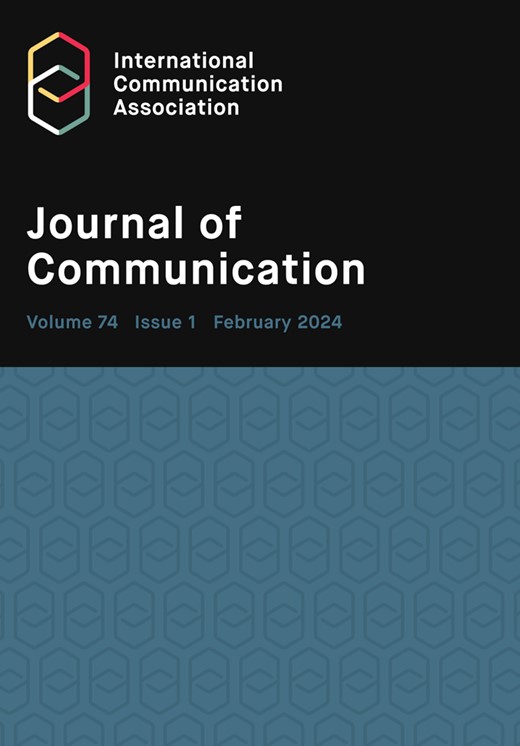调节适度:推特适度实践中令人反感的历史
IF 5.5
1区 文学
Q1 COMMUNICATION
引用次数: 2
摘要
社交媒体平台拥有在前所未有的审查下塑造公共话语的能力,近年来,它们通过建立复杂的内容审核系统,改进了自己的言论控制做法。这种构造转移的轮廓相对清晰。然而,很少有工作系统地记录、检查和理论化这一过程。本文使用数字方法和网络历史来追踪2006年至2022年间Twitter内容审核政策和实践中令人反感的内容的演变。它的结论表明,Twitter的目标不仅仅是放弃美国化的言论自由观,而是建立一个能够抵御外部冲击、批评和不断变化的言论规范的抗危机言论架构。我们所说的这种调节的节制,依赖于一种规范的可塑性,其目标不一定是判定内容是否可接受,而是根据不断演变的、偶然的公众反感性观念对其进行调节。本文章由计算机程序翻译,如有差异,请以英文原文为准。
Modulating moderation: a history of objectionability in Twitter moderation practices
With their power to shape public discourse under unprecedented scrutiny, social media platforms have revamped their speech control practices in recent years by building complex systems of content moderation. The contours of this tectonic shift are relatively clear. Yet, little work has systematically documented, examined, and theorized this process. This article uses digital methods and web history to trace the evolution of objectionable content on Twitter content moderation policies and practices between 2006 and 2022. Its conclusions suggest that, more than abandoning an Americanized view of freedom of speech, Twitter has aimed at building a crisis-resistant speech architecture that can withstand external shocks, criticisms, and shifting speech norms. This kind of modulated moderation, as we term it, hinges on a form of normative plasticity, whose goal is not necessarily adjudicating content as more or less acceptable, but moderating it on the basis of evolving and ever contingent public conceptions of objectionability.
求助全文
通过发布文献求助,成功后即可免费获取论文全文。
去求助
来源期刊

Journal of Communication
COMMUNICATION-
CiteScore
11.60
自引率
5.10%
发文量
41
期刊介绍:
The Journal of Communication, the flagship journal of the International Communication Association, is a vital publication for communication specialists and policymakers alike. Focusing on communication research, practice, policy, and theory, it delivers the latest and most significant findings in communication studies. The journal also includes an extensive book review section and symposia of selected studies on current issues. JoC publishes top-quality scholarship on all aspects of communication, with a particular interest in research that transcends disciplinary and sub-field boundaries.
 求助内容:
求助内容: 应助结果提醒方式:
应助结果提醒方式:


